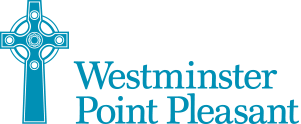Senior living has improved greatly over the past several years. There are now resources and communities based around senior living and support for seniors and their families. If you’re just beginning to navigate the world of senior living, you’ll likely encounter some unfamiliar terms.
It’s important to understand the most commonly used terms to ensure that you and your family are informed.
The Most Common Senior Living Terms
Many senior living communities share the same key terminology, including:
- Activities of Daily Living: Basic activities seniors need to complete each day such as eating, drinking, dressing, bathing, getting around, and taking medications
- Acute: Typically used to describe a serious health condition, such as arthritis
- Advanced Directive: A written statement of a senior’s preferences regarding medical treatment and healthcare
- Aging in Place: When seniors spend retirement in the family home versus moving to assisted living
- Assessment: An evaluation of a resident’s health needs and abilities, such as their ability to perform activities of daily living
- Caregiver: A person who provides support and care to a resident
- Certified Nursing Assistant: A healthcare professional who provides medical treatment under the supervision of a licensed nurse
- Co-Insurance: The amount a policyholder must pay after the insurance company approves and pays for their part of the cost of care
- Continuing Care Retirement Communities: Senior living communities that offer varying levels of care, including independent living, assisted living, and skilled nursing care
- Dual Eligibility: Describes a senior who qualifies for both Medicaid and Medicare
- Durable Power of Attorney: A legal agreement that allows a person to make health and financial decisions if the senior becomes unable to make those decisions themselves
- Exceeds Level of Care: A situation where the care a senior requires exceeds the abilities of their caregiver or community
- HIPAA: The Health Insurance Portability and Accountability Act, a law that protects sensitive health information
- Independent Living: A living style or type of senior living community for seniors who don’t need much help with activities of daily living
- Long-Term Care: Care provided to seniors for long durations, usually for those unable to care for themselves due to disability or chronic health challenges
- Managed Care: A type of care focused on reducing costs while still maintaining the level of care the resident needs
- Medicaid: A type of government insurance available to low-income individuals
- Medicare: A type of government insurance available to elderly individuals
- Memory Care: A specialized type of care provided to seniors experiencing memory-related challenges
- Occupational Therapy: A type of therapy intended to help seniors learn new ways of moving around and performing tasks that can enhance their quality of life
- Palliative Care: A form of medical treatment intended to reduce the severity of disease symptoms and improve comfort and quality of life
- Physical Therapy: A specialized form of therapy provided to seniors following a health issue. Physical therapy helps seniors recover and regain mobility.
- Skilled Nursing Facility: A type of senior living community that provides a high level of medical care
- Respite Care: A type of short-term care provided to seniors that gives regular caregivers a break
Keep in mind that every senior living community is different. As such, there will always be new terms for you and your family to learn over time.
Navigating the World of Assisted Living
Whether you’re looking for assisted living or independent living in St. Petersburg, Florida, there are many resources to help you understand these terms and the options available for you and your family. For more information, contact a local or national support service or consult with the staff at your local senior living community.





